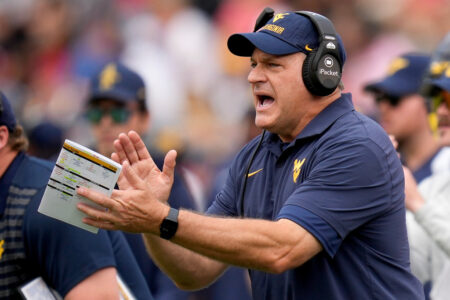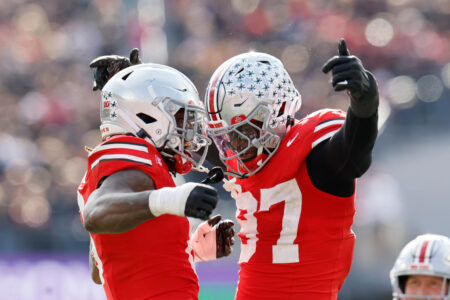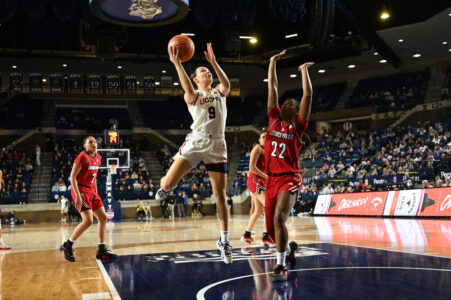WVU Rich Rodriguez provides thoughts on proposed sports gambling for college athletes
Gambling has been something in the world since the B.C.E. times when the Mesopotamians started playing dice. Sports gambling came soon after, but it’s becoming more common around the United States over the past couple of years. 39 states allow sports gambling, plus Washington D.C., and Puerto Rico, and it’s more prevalent with all the commercials for FanDuel and Draft Kings, and if you look at matchups on an app or television, the odds are right next to the time of the game.
The only place sports betting wasn’t allowed was for college athletes. However, that may change. In October, the DI Administrative Committee adopted a proposal that would allow college athletes to bet on professional sports. The new rule would be effective on Nov. 1.
Nov. 1 has since passed, and before, the NCAA voted to postpone the rule change to Nov. 22.
“It makes me nervous,” West Virginia’s Rich Rodriguez said. “I kind of like the fact that guys can’t gamble. There’s a reason why those gamblers or the gambling sites or the fancy hotels are so nice. They’re not losing very often.”
Others throughout college football have concerns. SEC commissioner Greg Sankey, who’s been very progressive when it comes to modernizing college football, voiced his concerns by sending a letter to the NCAA a couple weeks after the proposal.
“The message of our Presidents and Chancellors was clear and united: this policy change represents a major step in the wrong direction.”
Rodriguez wasn’t surprised by the SEC’s reaction.
“You wonder why, right?” Rodriguez said. “Well, they’re just trying to help and protect the student athletes. And sometimes you’ve got to protect somebody from themselves, right?”
Before the first fall practice in August, Rodriguez has a team meeting with his players. There are a lot of things brought up, but one of the key topics is sports gambling and what isn’t allowed.
There have been some cases when college athletes were caught gambling, and just a day after the NBA season, there were players caught gambling on their own sport. That’s one of the worries if this ruling is passed: players will intentionally play badly because they are betting on themselves through prop bets.
The other worry is that these student athletes are getting paid millions, if not hundreds of thousands of dollars, through NIL and revenue sharing, so they might use that money to gamble.
Rodriguez has been supportive of recent changes to college football with the singular transfer portal and College Football Playoff expansion, but this rule, he’s not too keen on.
“There are a lot of NCAA rules to this day, and in the past, that I did not agree with,” Rodriguez said. “10 years ago, you can give them a bagel, but not cream cheese. There’s a lot of stuff that was silly, but the rules against gambling, I think, was one that made a lot of sense.”





